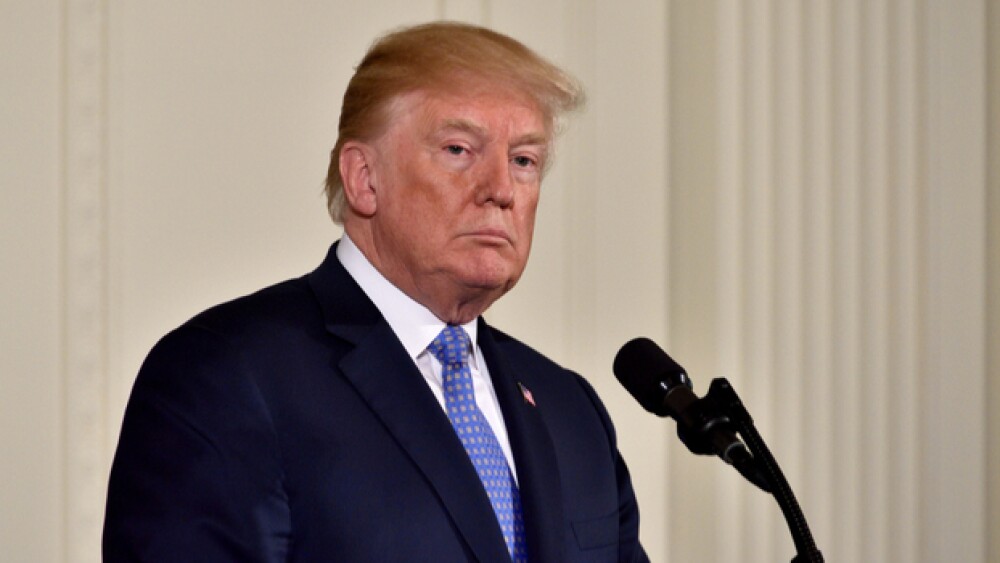Sino-American relations continue to show signs of strain after the administration of President Donald Trump ordered the Chinese majority owner of healthcare company PatientsLikeMe to sell his stake.
Evan El-Amin / Shutterstock.com
Sino-American relations continue to show signs of strain after the administration of President Donald Trump ordered the Chinese majority owner of healthcare company PatientsLikeMe to sell his stake.
First reported by CNBC, the company, which is based in Cambridge, Mass., came under scrutiny due to the White House’s increased focus on Chinese ownership of and investments in U.S.-based corporations. In 2017, PatientsLikeMe, which has a research agreement with Shire Pharmaceuticals to study rare genetic diseases, secured a $100 million investment. That financing deal allowed China-based iCarbonX and its renowned geneticist founder Jun Wang to secure a significant stake in the company. As part of the deal, iCarbonX, which is backed by Chinese investment powerhouse TenCent, provided multi-omics characterization services to the company.
According to CNBC, the deal ultimately drew the attention of the Committee on Foreign Investment in the United States. The government organization is forcing the divestiture of iCarbonX, CNBC said, citing unnamed people “familiar with the matter.” The committee was established during the presidency of George W. Bush, which gave the president the authority to review and block any merger that the administration sees as a concern with which could result in a foreign individual or company controlling a U.S.-based company.
The increased scrutiny of the Trump administration has caused a significant decline in Chinese investment in U.S. companies, CNBC said. Over the past two years, direct investment from China into U.S. companies has declined about 90 percent, according to the report. More divestitures related to the Sino clampdown are pending, CNBC said.
While overall Chinese investment in U.S. companies may have significantly dropped over the past two years, last year there was a 70 percent increase in Chinese investment into western pharma companies, including many in the U.S. Last year, China’s BeiGene teamed up with SpringWorks Therapeutics to develop therapeutics that will target advanced solid tumors that contain RAS mutations, as well as other MAPK aberrations. Also last year, WuXi’s subsidiary Shanghai SynTheAll Pharmaceutical Co., Ltd., a contract development and manufacturing organization, secured a physical toehold in the United States, opening an operation site in San Diego that will provide process research and development as well as API manufacturing services for early phase clinical studies. WuXi also formed a partnership with Seattle-based Juno Therapeutics to develop treatments for cancer with the formation of a new Chinese company called JW Biotechnology Co., Ltd. The new Chinese company’s mission will be to build a cell therapy company in China through using Juno’s chimeric antigen receptor (CAR) and T cell receptor (TCR) technologies in combination with WuXi AppTec’s R&D and manufacturing platform.
While the use of CFIUS is not uncommon, CNBC noted that this is the first time the committee’s power has been directed at a small company. Most deals the committee investigates amount to billions of dollars as opposed to the $100 million that PatientsLikeMe received. The Bay State company, which described itself as the world’s largest personalized health network, has not publicly commented on the efforts of the White House. However, CNBC noted that the company has been seeking a potential buyer.





